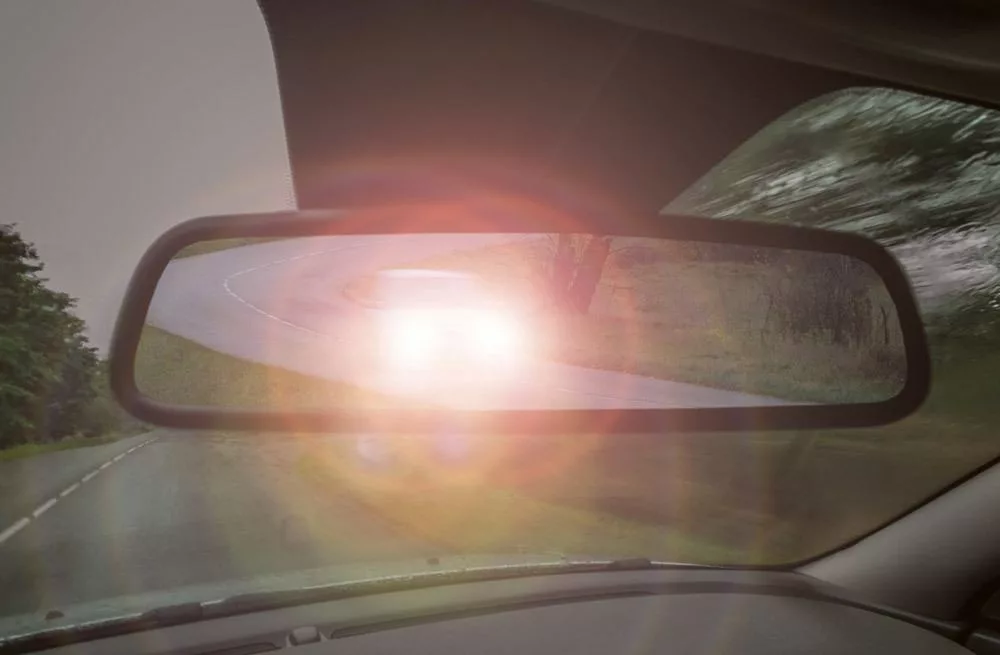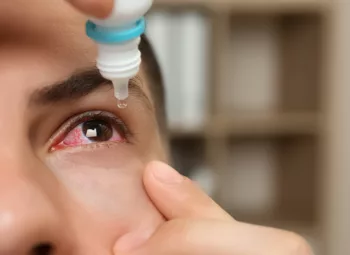
Difficulty seeing at night is a common problem that affects millions of Americans. So common in fact that many people simply learn how to live with it rather than trying to do something about it. The problem with treating night vision loss as an inconvenience or annoyance is that we may likely be ignoring a more serious problem.
Loss of night vision is often the result of an underlying condition and a danger to ourselves and others.
What Causes Night Vision Loss?
There are a number of reasons you may be experiencing night vision loss, ranging from age and vitamin deficiency to sun exposure or underlying disease.
- Age & Presbyopia is the natural decline in visual acuity as we get older. Our pupils don’t dilate in dim light or dark areas as much as they once did, allowing less light to enter the eye. The cornea also becomes less flexible and less clear causing more glare from light sources such as headlights or street lights.
- Sun Overexposure is the result of spending prolonged periods of time outdoors without adequate sun protection. This can temporarily impair night vision for up to 2 or 3 days. Wearing sunglasses that offer UVA and UVB protection can prevent temporary night vision loss.
- Vitamin A & Zinc Deficiency can affect the quality of vision. These vitamins and minerals promote healthy retinas and prevent macular degeneration. Vitamin A is found in a variety of leafy greens and carrots while Zinc can be found in beef, poultry, nuts, and beans.
- Cataracts are a natural part of aging and one of the first signs of cataract development is difficulty seeing at night. The cloudiness of the eyes lens can distort incoming light causing glare and halos.
- Glaucoma affects vision in general, making night vision loss a common issue. Causing pressure in the eye that affects peripheral vision and leads to increased sensitivity to light. These symptoms become more noticeable and pronounced at night.
- Retinitis Pigmentosa is a genetic disorder that primarily affects young people under 30 and causes damage to the retina. Diminished or worsening night vision problems are early warning signs.
What are the Symptoms of Night Vision Loss?
Suffering from a lack of night vision is fairly easy to identify. The primary symptom being difficulty seeing in the dark or dimly lit places. You are most likely to experience night vision problems when transitioning from a well-lit environment to a poorly lit or dark area.
Driving at night will also intensify symptoms due to recurring changes in light levels from passing vehicle headlights and street lights.
Specific Symptoms Include:
- Sensitivity to light or glare
- Poor adaption between light & dark conditions
- Blurred vision at night
- Haloes surrounding lights such as oncoming traffic & street lights
How to Prevent Night Vision Loss
Treating the underlying cause of night vision loss may help to improve your condition.
To start, you may simply need to adopt healthier habits in your daily life. Fortifying your diet with antioxidant-rich vitamins and minerals, including high levels of vitamin A can reduce your risk of night vision loss.
Furthermore, wearing protective UV blocking sunglasses while outside for prolonged periods of time can also greatly reduce your risk.
Because night vision loss is often a sign of more serious eye health condition or concern, it is important to let your eye doctor know of your difficulties. If you are experiencing complications seeing at night or in dimly lit places, call or contact the eye care experts at the NeoVision Eye Center today.
Don’t take a chance with your vision, early diagnosis of any eye condition may very well save your sight.





